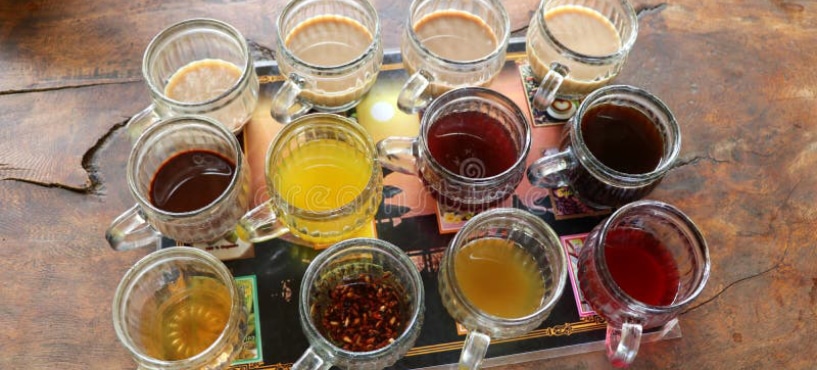Bali, an island renowned for its picturesque landscapes, rich cultural heritage, and vibrant tourism industry, is also home to a burgeoning tea culture. While the island is more famously associated with its coffee plantations, tea production and consumption have been steadily gaining traction. This article delves into the world of Balinese tea, exploring its history, cultivation, varieties, and the cultural significance it holds on the island.
Introduction to Tea in Bali
The tea culture in Bali is a fascinating blend of traditional practices and modern innovations. Although tea is not as deeply entrenched in Balinese culture as it is in other parts of Asia, it has been embraced with enthusiasm and creativity. This growing interest is not only a testament to the island’s agricultural versatility but also to the global trends that have influenced local tastes and practices.
History of Tea in Bali
The history of tea in Bali is relatively recent compared to other parts of Indonesia. Tea cultivation in Indonesia dates back to the Dutch colonial era in the 18th century, but it was predominantly centered in Java and Sumatra. Bali, on the other hand, was more focused on other agricultural products such as rice and spices.
It wasn’t until the late 20th and early 21st centuries that tea began to be cultivated on a significant scale in Bali. This shift was driven by a combination of factors, including the island’s thriving tourism industry, the global rise in tea consumption, and a growing interest in organic and specialty teas.
Tea Cultivation in Bali
Bali’s unique geography and climate provide ideal conditions for tea cultivation. The island’s volcanic soil, high elevations, and tropical climate contribute to the production of high-quality tea leaves. Tea plantations are primarily located in the central and northern regions of Bali, where the altitude and climate are most suitable.
Key Tea Growing Regions
- Kintamani: Located in the central highlands, Kintamani is known for its fertile volcanic soil and cool climate. This region is famous for producing both coffee and tea, with plantations often intercropping the two.
- Bedugul: Situated in the central part of the island, Bedugul’s temperate climate and rich soil make it another prime location for tea cultivation. The region is also known for its scenic beauty, attracting tourists to its tea gardens.
- Munduk: This northern region is gaining recognition for its tea plantations, which benefit from the high altitude and misty climate. Munduk’s tea is noted for its unique flavor profiles.
Tea Varieties in Bali
Bali produces a variety of teas, each with distinct characteristics. Some of the popular types include:
- Green Tea: Known for its fresh, grassy flavor, Balinese green tea is often cultivated using traditional methods that preserve its natural antioxidants and health benefits.
- Black Tea: Balinese black tea is robust and full-bodied, with a rich aroma and deep flavor. It is often enjoyed with a splash of milk or a hint of sugar.
- Herbal Teas: In addition to traditional teas, Bali is also known for its herbal infusions made from local plants and herbs. These include lemongrass tea, ginger tea, and other blends that offer various health benefits.
Cultural Significance of Tea in Bali
Tea in Bali is more than just a beverage; it is a cultural experience. Tea drinking is often associated with relaxation, meditation, and social gatherings. The practice of tea drinking is influenced by both local traditions and the island’s diverse cultural interactions.
Tea and Balinese Rituals
In Balinese culture, tea is sometimes used in religious and spiritual ceremonies. It is offered as a symbol of hospitality and respect. Tea ceremonies, though not as elaborate as in Japan or China, are practiced in some communities as a way to honor guests and foster communal harmony.
Tea in Modern Balinese Life
In contemporary Balinese society, tea has become a popular daily beverage. It is enjoyed both at home and in various social settings. Cafes and tea houses in Bali have embraced this trend, offering a wide range of teas and tea-based beverages. The rise of wellness tourism has also contributed to the popularity of tea, with many wellness retreats incorporating tea rituals into their programs.
Tourism and Tea in Bali
Tea tourism is an emerging trend in Bali, attracting visitors who are eager to explore the island’s tea culture. This form of tourism offers a unique blend of agricultural education, cultural experiences, and scenic beauty.
Tea Plantation Tours
Many tea plantations in Bali offer guided tours, allowing visitors to learn about the tea cultivation process, from planting to harvesting to processing. These tours often include tea tasting sessions, where visitors can sample different varieties of tea and learn about their unique characteristics.
Tea Festivals and Events
Bali hosts several tea-related events and festivals throughout the year. These events celebrate the island’s tea culture and provide opportunities for locals and tourists to engage with tea producers, participate in workshops, and enjoy tea-inspired culinary creations.
Tea and Wellness Retreats
The island’s reputation as a wellness destination has led to the integration of tea rituals into wellness programs. Many retreats offer tea meditation sessions, herbal tea workshops, and detox programs that highlight the health benefits of tea. These experiences combine relaxation with education, allowing participants to deepen their appreciation for tea.
Case Studies: Notable Tea Producers in Bali
Bali Mountain Tea
Bali Mountain Tea is one of the island’s leading tea producers, known for its commitment to organic farming and sustainability. The plantation, located in the Kintamani region, produces a variety of teas, including green, black, and herbal teas. Bali Mountain Tea emphasizes eco-friendly practices and community engagement, making it a model for sustainable tea production.
Sababay Tea
Sababay Tea is another prominent tea producer in Bali, offering a range of high-quality teas. The plantation is situated in the Bedugul region, where the cool climate and fertile soil provide ideal growing conditions. Sababay Tea focuses on creating unique blends that reflect the island’s diverse flora and flavors, appealing to both local and international markets.
Munduk Moding Plantation
Munduk Moding Plantation is renowned for its specialty teas and stunning location in the northern highlands of Bali. The plantation combines traditional cultivation techniques with modern processing methods to produce premium teas. Visitors to Munduk Moding Plantation can enjoy guided tours, tea tastings, and scenic views of the surrounding mountains and forests.
Tips for Enjoying Tea in Bali
If you are planning to explore Bali’s tea culture, here are some tips to enhance your experience:
- Visit a Tea Plantation: Take a guided tour of a tea plantation to learn about the cultivation and processing of tea. Many plantations offer interactive experiences, including tea picking and tasting sessions.
- Try Local Blends: Experiment with different types of Balinese tea, including unique herbal blends made from local ingredients. These teas offer a taste of the island’s natural bounty.
- Attend Tea Events: Check out local tea festivals and events to immerse yourself in the tea culture. These events often feature workshops, demonstrations, and opportunities to meet tea producers.
- Explore Tea Cafes: Visit tea houses and cafes in Bali that specialize in tea. These establishments often have a wide selection of teas and offer a relaxing atmosphere to enjoy a cup.
- Participate in Tea Rituals: Engage in tea meditation or join a wellness retreat that incorporates tea rituals. These experiences can provide a deeper connection to the cultural and spiritual aspects of tea.
Future Trends in Balinese Tea Culture
The future of tea culture in Bali looks promising, with several trends likely to shape its development:
Sustainable and Organic Farming
As global awareness of environmental issues continues to grow, there is an increasing demand for sustainably produced and organic teas. Balinese tea producers are likely to continue adopting eco-friendly practices, focusing on sustainability and community development.
Innovative Tea Blends
The trend towards unique and innovative tea blends is expected to continue. Producers are experimenting with new flavors and combinations, incorporating local ingredients such as tropical fruits, herbs, and spices to create distinctive Balinese teas.
Health and Wellness Integration
The integration of tea into health and wellness programs is likely to expand. With the rise of wellness tourism, tea rituals, detox programs, and mindfulness practices centered around tea will become more prevalent, attracting health-conscious travelers.
Digital and Global Outreach
Balinese tea producers are increasingly using digital platforms to reach a global audience. Online sales, virtual tours, and social media engagement are helping to promote Balinese tea worldwide, enhancing its reputation and market reach.
Conclusion
Bali’s tea culture is a vibrant and evolving aspect of the island’s agricultural and cultural landscape. From the lush tea plantations in the highlands to the serene tea houses in urban areas, tea in Bali offers a unique experience for both locals and visitors. As the island continues to embrace sustainable practices, innovative blends, and wellness integration, Balinese tea is poised to become a significant player in the global tea market. Whether you are a tea enthusiast or a curious traveler, exploring the tea culture in Bali is sure to be a rewarding and enriching experience.





